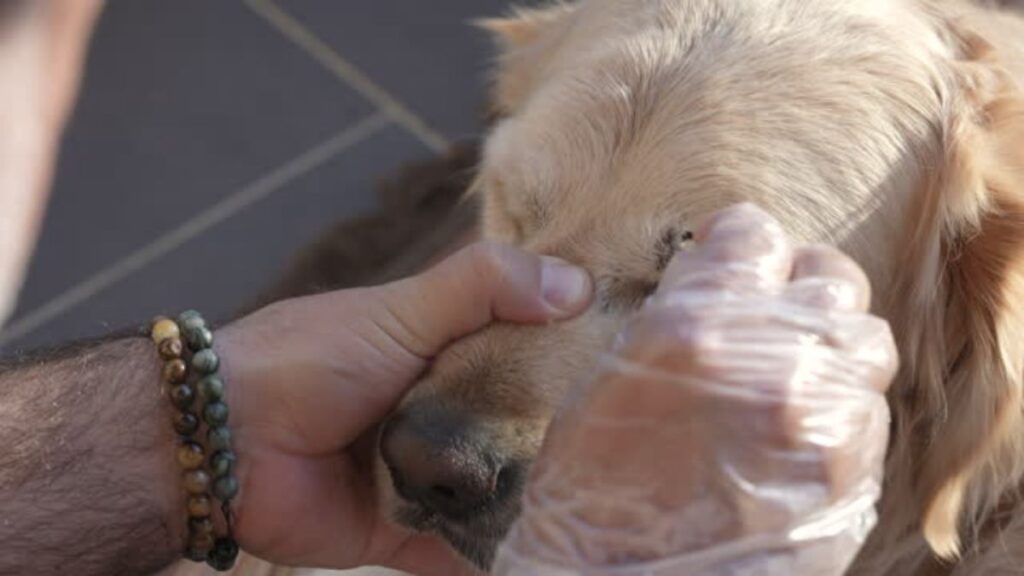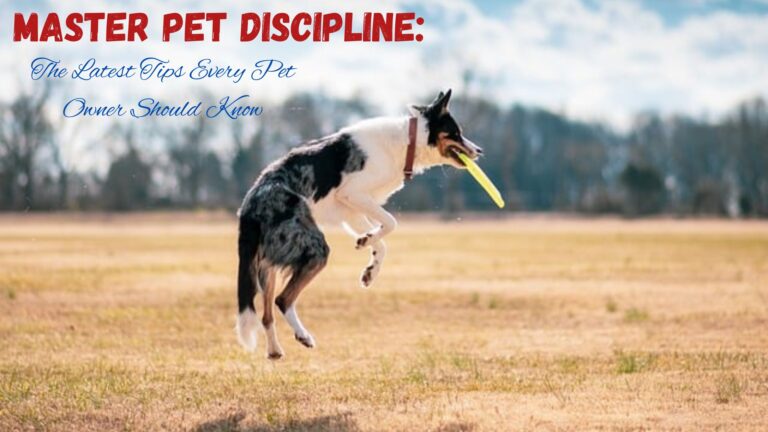Introduction:-
Insect-Proof Your Pets: Rainy Weather Safety Strategies

When rainy weather hits, be prepared for an increase in insect activity that could pose a threat to your beloved pets. Mosquitoes, fleas, and ticks thrive in damp conditions, making the risk of bites and infestations even higher. To ensure the health and well-being of your furry friends during the rainy season, prioritizing protection against these pests is essential. Here are some effective strategies to keep your pets safe from insects when the skies open up:
Insect-Proof Your Pets: Essential Tips
1.Regular Grooming and Inspection:
- Regularly brush your pet’s fur to remove hidden insects and check for bites or skin irritation.
- Pay close attention to areas like the under-collar, ears, and between toes.
- For added protection, bathe pets with a gentle, pet-safe insect repellent shampoo.
2.Preventative Treatments:
- Use topical treatments, oral medications, or insect-repellent collars to prevent flea and tick infestations.
- Consult with your veterinarian to choose the best option based on your pet’s breed and health conditions.
3.Home and Yard Maintenance:
- Keep your home clean, especially areas where pets spend time, to deter insects.
- Wash pet bedding frequently and maintain a dry, clean living space.
- Remove standing water in your yard to prevent mosquito breeding grounds.
- Trim bushes and grass to reduce hiding spots for ticks and fleas.
4.Limit Outdoor Time During Peak Insect Hours:
- Insects are most active at dawn and dusk. Restrict pets’ outdoor activities during these times.
- Consider using pet-safe insect repellent sprays on your pet’s fur and exposed skin for additional protection.
5.Create a Safe Indoor Environment:
- During rainy weather, keep pets indoors as much as possible.
- Use screens on windows and doors to prevent insects from entering the home.
- Consider indoor insect traps and safe insecticides to manage infestations.
- Provide mental and physical stimulation indoors to keep pets happy and healthy.
6.Natural Remedies and Solutions:
- Explore natural insect repellents like essential oils (lavender, eucalyptus, citronella) with caution due to potential toxicity.
- Consult your veterinarian before use.
- Plant insect-repelling plants like marigolds and rosemary in your yard.
7.Monitor Pet’s Health:
- Regular vet check-ups are crucial, especially during the rainy season.
- Be vigilant for signs of insect bites or infestations, such as excessive scratching, redness, or hair loss.
- Early detection and treatment prevent more severe health issues.
What are the best flea and tick treatments for dogs during rainy seasons?
During rainy seasons, selecting flea and tick treatments for dogs that resist water is crucial, as rain can diminish certain products’ effectiveness. Here are recommended options:

- Topical Treatments: Spot-on treatments like Frontline Plus, Advantix, or Seresto collars withstand water exposure after drying.
- Oral Medications: Bravecto and NexGard are orally ingested flea and tick medications that work internally and are unaffected by rain once absorbed.
- Shampoos and Sprays: Water-resistant shampoos and sprays provide temporary relief and protection, but may require frequent application if the dog gets wet often.
- Collars: Flea and tick collars like Seresto gradually release active ingredients and are water-resistant, offering continuous protection against pests.
Consult the manufacturer’s instructions for application and reapplication to ensure effectiveness, especially during rainy seasons with increased water exposure.
What plants can I grow to naturally repel insects from my pet’s environment?
Insects can be a nuisance in your pet’s environment. Fortunately, numerous plants can be grown to repel them naturally. Consider the following effective options:
- Lavender: Known to repel fleas, moths, and mosquitoes, this fragrant herb can be planted in pots or in the garden to keep insects at bay.
- Rosemary: Another aromatic herb, rosemary, repels mosquitoes and deters fleas. It’s easy to grow in pots or in the ground.
- Marigolds: These colorful flowers contain pyrethrum, a compound found in many insect repellents. Plant them around your garden or in pots near entryways to deter mosquitoes and other insects.
- Basil: Not only a culinary herb, basil also repels mosquitoes and flies. Place potted basil plants in areas where your pet spends time outdoors.
- Catnip: While cats adore it, catnip is also an effective repellent against mosquitoes, flies, and cockroaches. Plant catnip in pots to safeguard specific areas.
- Lemon Balm: This lemon-scented herb repels mosquitoes and can be grown in pots or in the garden.
- Mint: Peppermint and spearmint repel mosquitoes, ants, and even mice. Plant them in pots to control their growth.
- Chrysanthemums: These flowers contain pyrethrin, a natural insect repellent, and are effective against mosquitoes, ticks, and fleas.
By strategically incorporating these plants into your garden or placing them around your pet’s living areas, you can naturally deter insects while enhancing your surroundings with greenery and fragrance.
Are essential oils safe for repelling insects on pets?
Essential oils can be effective for repelling insects on pets, but they must be used with caution due to their potency and potential toxicity if not used properly. Here are some guidelines to consider:

- Essential Oil Dilution: Before applying essential oils to your pet, always dilute them properly. Essential oils are highly concentrated and can cause irritation or toxicity if applied directly.
- Safe Oils for Pets: Some essential oils that are generally considered safe for dogs when diluted include lavender, cedarwood, citronella, and lemongrass. However, cats are more sensitive to essential oils, so caution is advised when using them around felines.
- Application Technique: Avoid applying essential oils directly to your pet’s fur or skin. Instead, mix a few drops in a carrier oil (such as coconut or olive oil) or water to create a spray. Apply sparingly, avoiding sensitive areas like the eyes, nose, and mouth.
- Patch Test: Before using any essential oil on your pet, conduct a patch test on a small area of skin to check for irritation or allergic reactions.
- Veterinarian Consultation: If you’re unsure about using essential oils on your pet, consult with a veterinarian knowledgeable about essential oil use in pets. They can provide personalized guidance based on your pet’s specific needs and health concerns.
In summary, while essential oils can be effective natural insect repellents for pets, it’s essential to use them safely and responsibly to prevent any adverse effects on your furry companion.
Conclusion
During rainy weather, safeguarding your pets from insects necessitates proactive measures. By implementing these safety strategies, you can ensure your pets’ health and comfort, even in the wettest months. To keep insects at bay, follow these key steps: regular grooming, preventative treatments, maintaining a clean environment, and regularly monitoring your pet’s health. Remember, a little effort goes a long way in protecting your furry friends from the nuisances of rainy weather.
For more pet care tips and advice, visit our blog. Please share your experiences and tips in the comments below—we’d love to hear from you!
References
- American Kennel Club: Learn how to protect your dog from various insects, including practical tips and preventative methods.
- PetMD: Discover comprehensive information on flea and tick prevention, including the types of treatments available and how to use them effectively.
- ASPCA: Get essential steps for preventing flea infestations and maintaining a clean environment for your pets.
- VCA Animal Hospitals: Explore strategies to protect your pets from mosquito bites and keep mosquitoes at bay.
- WebMD Pets: Gain a thorough overview of safeguarding pets from common insects, including potential health risks associated with bites and infestations.
- The Spruce Pets: Find natural remedies and solutions for repelling insects, such as using essential oils and insect-repelling plants.
- The Humane Society of the United States: Although focused on summer, this guide includes valuable tips on protecting pets from insects and maintaining their well-being during warmer, wetter months.
- Centers for Disease Control and Prevention (CDC): Learn how to protect pets from ticks and the diseases they carry, emphasizing regular inspections and preventative measures.








